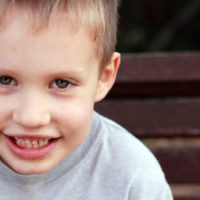Search results
-

Autism & Intellectual Disability
This edition of the Bridge is on Autism & Intellectual Disability.
Read more -

What is attachment theory used for?
Attachment theory is amongst the most popular theories of child development and has received much attention from psychologists and researchers across the world for the last 50 years. Such popularity implies that it is perceived by many to be of great importance and utility to understanding people and their behaviour in different contexts – but, why?
Read more -

What are the barriers to mindfulness for Tourette’s?
We know that mindfulness and meditation can be of great benefit to people but it is a challenge for those with movement disorders such as Tourette Syndrome.
Read more -

Compensating for ASD: masking the truth?
“Compensation” is a phenomenon by which individuals with Autism Spectrum Disorder (ASD) show improvements in overt symptoms, namely their understanding of others (“theory-of-mind”, ToM), despite persisting deficits at the cognitive and neurobiological levels.
Read more -

Autism Symposium
In order to view this content, you need to be an ACAMH member. Membership starts from just 11p a day. We hope you consider joining and being part of the advancement of child and adolescent mental health.Read moreCurrent members will need to be registered as a website user and log in, our guide to this simple process can be accessed here.
-

ASD – Autism Spectrum Disorder
Autism Spectrum Disorder (ASD) is a complex developmental disorder that affects how people perceive the world and interact with others. People on the autism spectrum may have difficulties with social communication, social interaction and restricted and repetitive patterns of behaviours, activities or interests.
Read more -

CAMHS – Child and Adolescent Mental Health Services
Child and Adolescent Mental Health Services (CAMHS) is a broad term for all services that work with children and young people who have difficulties with their emotional or behavioural wellbeing. As well as NHS CAMHS, local areas will have a range of other services available, based on local need and commissioning arrangements. These include services from local authorities, schools, charities, the private sector and community paediatrics.
Read more -

Bullying
Not long ago, bullying was viewed as a normal part of childhood’s formative experiences. Over the past 50 years, since the pioneering work of Dan Olweus (1970), bullying started to be recognized as a complex public health matter and a social problem. Solid evidence has accumulated about the impact of bullying victimization on children’s and adolescents’ (hereby youth) mental health and well-being.
Read more -

Self-harm & Suicide
Self-harm is an increasingly recognised phenomenon and one of the strongest predictors of suicide, which continues to be one of the leading causes of death in young people worldwide. Self-harm can take many forms and may present with or without suicidal intent and both in the context of mental disorder, and without.
Read more -

Low activity levels affect child mental development
High activity levels (AL) in early childhood are associated with sub-optimal social and behavioural outcomes, but whether low AL have negative outcomes is unclear. Now, a study conducted by researchers at Boston University has demonstrated that AL are curvilinearly related to mental development.
Read more
